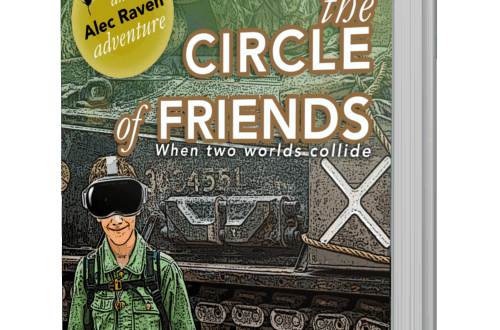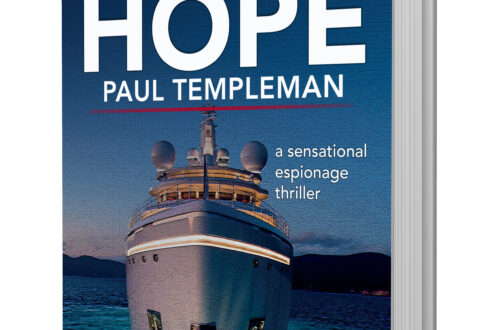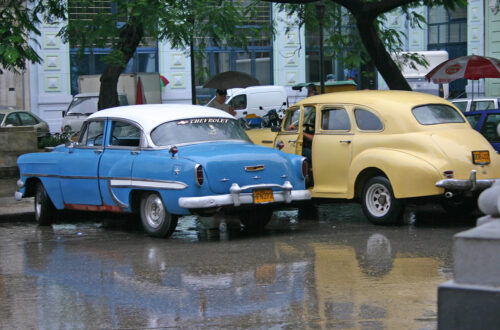‘THE CORAL IS dying,’ said Daniel to a small and disinterested family of floppy-hatted, baked-skinned tourists. The matriarch’s translucent beach robe shimmied around her wide hips. She took snaps of a coral tank on her iPhone then glanced at her screen, instantly gratified. The chill thrust of the air conditioning raised hairs on bare limbs. Fluorescent lamps glanced off the water in steel tanks, adding polish. Outside the windows of the lab the morning sun intensified its grip on the beach: it had the day by the scruff of the neck and was asphyxiating it.
‘Coral is unbelievably important to the diversity of the planet. It acts as a habitat for one third of the world’s biological diversity. I was blown away when I learned that,’ confided Daniel with candour. And to him the coral was alive, a great pulsating mass out there beyond the breaking surf. Was it the voice of the coral that spoke to him at nights in his deceased father’s voice?
The family were tight jawed and sceptical and shuffled their feet, impatient for breakfast.
Daniel brandished a twiggy splinter of coral—the one he always used to illustrate the problem. ‘Look at this sample of bleached coral. The natural colour of coral is white.’
‘Not always,’ argued the father, ‘I’ve been scuba diving. I’ve seen it in all colours. Green, purple—‘ he floundered, as though his colour palette had dried up. ‘—and some other colours.’
‘Can we go to breakfast now?’ pleaded the son, wrestling his mother’s thigh. He was wearing a Punta Cana baseball cap with the peak reversed and Nike trainers with raised soles.
‘Soon dear. David is telling us about coral,’ said the woman.
‘I want pancakes and bacon and maple syrup,’ said the boy.
‘It’s Daniel,’ Daniel corrected the woman with a diffident smile.
‘I like your hair,’ she said, off-topic and personal. Daniel’s hair was shoulder length, a tumble of blonde curls. The woman reached out a tentative hand but thought better of it. ‘You look like … you look like Jesus,’ she marvelled.
‘Thanks,’ he said, turning to her husband, feeling wrong-footed. ‘It’s the algae, you see, that gives coral its colour. They’re symbiotic: that means they can’t live without each other.’
‘A bit like us then, babes,’ said the husband with a laugh that lacked sincerity. He nudged his wife and was swatted away like a Caribbean mosquito. ’Symbiotic, that’s what we are.’
‘Stop it,’ she threw him a sour look.
‘So, here’s the thing: climate change is killing off the algae,’ continued Daniel, ‘and the algae are what nourishes the coral. If the oceans don’t cool off, then the coral bleaches and dies too. It’s happening now, all over the world. The oceans are heating up and the coral is dying—after 500 million years of existence. Can you feel how hot it is now? It’s never been this hot in my lifetime.’
The impact was lost on the woman, who pushed her son away. ‘Don’t, Calvin. We’re going soon. We like the heat, don’t we luv? It’s why we come to the Caribbean. Better than rainy England. Cold and wet it is there now. So my friend tells me.’
‘500 million years,’ repeated Daniel for emphasis, losing his audience with the magnitude or just because of apathy. ‘The dinosaurs died out 65 million years ago.’
The woman looked around at the bath-sized water tanks containing insignificant lozenges of rescued coral. Seeing nothing to capture her interest she craned her neck. Through an internal window she saw an array of microscopes and shiny surfaces. ‘Calvin’s got a microscope like those,’ she said. ‘Never uses it. Never, does he? Too busy on his PlayStation. You know what kids are like these days…’ Outside the day was sharply focussed and radiant. Beachgoers strolled past the windows without a glance. The air conditioner exhaled a flurry of icy air, and the woman shuddered, her interest flagging. Her skin was stippled. ‘So where are you from?’ she said. ‘We’re from Woking in England—near London,’ she added as if that might be the only English town an American might know about. ‘It suits us.’
Daniel sighed. ‘I’m from California originally.’
‘Whereabouts?’ said the husband, newly interested.
Daniel shook his head. ‘You wouldn’t know it.’
‘I know California,’ insisted the man.
‘Sausalito. It’s a small town near—‘
‘I don’t know Sausalito,’ said the man with a deflated shake of his head, his attention fading. He was angular and tattooed with an aggressive, wide-footed stance, and a forward lean that suggested he was working hard just to keep upright. His breath was sour with last night’s rum.
‘Look at this,’ said Daniel, leaning over a tank and pointing to a bulbous coral that undulated beneath the water. ‘The scientific name for this coral is Dendrogyra cylindrus—you probably know it as ‘Pillar coral.’
‘Pillow coral,’ said the woman, enunciating carefully and nodding her head with a sage expression.
‘Pillar,’ repeated Daniel.
‘Of course,’ she said. ‘I knew that.’ She laughed, a cackle that she tried to calibrate halfway through. Daniel thought it was a smoker’s laugh.
‘See the waving polyps? He’s hungry,’ said Daniel, pointing.
The woman looked bored now. ‘So, do you feed it?’ she asked, without much interest.
‘I call him Fluffy,’ said Daniel. He produced a plastic container and dipped a syringe into it, sucking up cloudy liquid, ‘and I’m going to feed him right now. This is a plankton solution,’ he said. He administered a stream of liquid to the flailing tentacles which billowed and bloomed as tiny mouths opened and closed.
‘There—you see?’ said Daniel with pride and patronage. Was the coral thankful? Did it feel the pangs of hunger? A strange tremor passed through him.
‘So, what’s Sausalito like?’ said the man, ignoring the coral. ‘How’d you end up here?’
‘Sausalito is fine. I’m a marine biologist. The SeaVista resort sponsors this programme, and I came here to help save the coral reef surrounding the Dominican Republic. You know, if it wasn’t for the reef this resort wouldn’t exist at all?’
Calvin was stabbing at an iPhone, which played a mindless melody punctuated with periodic buzzes and bleeps. His mother said: ‘You say this coral is alive? Like an animal?’
‘That’s exactly right. It is an animal—the oldest member of the animal kingdom. Some can live for 5,000 years.’
‘So do they think, then? Do they have actual thoughts?’ said the woman, wrinkling her nose.
‘That’s deep, babes,’ said her husband, as though sharing a joke.
‘A good point,’ said Daniel, squirting another dose of plankton at Fluffy. ‘The science says that although corals are animals, they’re not sentient. But they somehow know when it’s mealtime—when I come to feed them, for instance. It’s a difficult thing to contemplate, but my theory is they have a kind of collective intelligence, a bit like ants.’ He was drifting, testing out his theory on the guests but lost in the possibilities of thinking coral.
The woman’s eyes had glazed over. ‘But they don’t actually think, do they?’ she pressed.
‘Not in the sense you mean, no.’
‘Shame,’ she said with a dismissive look at Fluffy. ‘All right Calvin, let’s go to breakfast. ‘Thank you, David,’ and she extended a regal hand to Daniel, which from the gesture he didn’t know whether he was expected to shake or to kiss.
‘No problem,’ he said, accepting the hand fleetingly, ‘…and it’s Daniel, remember?’
#
Moments later Celina breezed in, a flurry of apologies and flapping hands. She was all bright white teeth and bronzed limbs and ribbons of honey coloured hair that eddied around her shoulders.
‘So, so, sorry, Daniel. I’m so late.’ She had a slight inflexion, a way of extending her vowels that betrayed her Swedishness.
‘You’re not late at all.’
‘But you must want your breakfast. It’s almost ten thirty.’
In truth he hadn’t thought about food. It was the heat: he rarely had an appetite in the heat, and today it was hotter than ever.
‘I wasn’t that hungry.’ He nodded out of the window at the lingering family who seemed to be engaged in an argument. ‘We had guests while you were at breakfast.’
Celina looked out at the departing family, the boy swinging on his mother’s arm. ‘Were they so terrible?’ she said, ingratiating.
‘Well, yes they were.’
She patted his cheek and his stomach contracted at the lightness of her touch, inhaling the scent of her perspiration and her sun block. ‘Poor Daniel. Well as you can see, I’m back now,’ she said, and she tugged open the glass door, swinging her Gucci handbag, and breezed into the laboratory where she slipped the obligatory white lab coat over her T shirt and jeans.
‘Lisa called me,’ she called from the lab. He didn’t know who Lisa was but she often called Celina from Stockholm. ‘It’s 32 degrees there, can you believe? In Stockholm!’
‘I’ll get some breakfast,’ he said, and he was at the door, hoping to be called back, when he thought he heard his name called.
‘Daniel.’ A voice in his head. He propped open the glass door and called inside. ‘Did you say something Celina?’
‘Not me,’ said Celina, ‘maybe your precious corals were talking to you.’
‘Funny,’ said Daniel. Thirty-two degrees, in Stockholm. The world was on fire.
‘Enjoy your breakfast.’
He closed the door and crossed the footpath to the beach, lifting off his sandals. The sand scalded the soles of his feet. Only a few sun-baked holidaymakers had set up an early camp on sun loungers. Motley encampments cowered under thatched parasols already sipping cocktails and murmuring to each other. Daniel nodded at a waiter he knew, fresh and laundered despite the heat.
‘Good morning, Senōr Daniel.’ The waiter’s thick soled shoes buried themselves in the sand. He flapped a tray at his side.
‘Hey, Carlos,’ he returned, pausing to survey the beach, hands on hips. ‘Not busy yet.’
‘Not today, Mr Daniel. The seaweed…’ he said, making a gesture towards the lapping ocean. ‘They prefer the pool.’
A shallow bank of yellow and brown seaweed stretched along the beach. Daniel shielded his eyes from the sun, looking along the coastline. ‘It’s worse today,’ he said.
‘Most days now, Senōr Daniel,’ said Carlos in a despairing voice. ‘The tractors, they come later to clear it away. But it’s not so nice to swim in like before.’
‘Hmm,’ said Daniel, limping down towards the water and hopping over the bank of seaweed. ‘See you later, Carlos.’
‘If you need anything…’ Carlos said, with a wave and a grin.
High above a Boeing trailed a silver ribbon across a vast blue sky. Daniel met the tepid water with his bare toes: the water glutinous and brown in contrast to the Caribbean idyll. He stooped, scooping out a handful of seaweed. It was sargassum, a variety that now plagued the island beaches and the Mexican coast. He pinched the tiny air bladders between his fingers until they popped—the berries that kept the seaweed afloat. It was an epidemic. Millions of tons of the stuff floated out there, blocking the light that coral needed to grow. Climate change was never less in doubt.
He tossed the seaweed into the water. A ragged frigate bird swooped and then soared. Nothing of interest. The stale heat caused his chest to tighten.
‘Daniel.’
He looked around. There was nobody within hailing distance, but he was certain he’d heard somebody call his name. A low, insistent voice, he thought. Perhaps just carried on the breeze—except there was no breeze. A mystery then.
#
Professor Abraham Jewson perched on the patient bed, eschewing the chair at the side of the desk. The consulting room was compressed and silent, a vacuum. He was short of breath, but when he tried to breathe deeply his lungs wouldn’t fill. He’d known Curtis Watkins for half a century and had never seen him this serious, swivelled towards him from the desk with his hands folded in his lap. He looked old and piercing. Tight curled, steely hair these days, and a fraught lined face. A bow tie he successfully pulled off without looking trite.
‘So what are you telling me, Curtis?’ he said.
‘I can’t sugar coat it, Abe,’ replied his physician in a sombre tone.
‘Then don’t.’
Curtis looked out of the window. A new generation Tesla CD (Clean Diesel) saloon was engaging its notorious automated parking system to manoeuvre into a parking spot between two pickups. They both saw it and allowed themselves to be distracted by the angular bodied car’s shifts and turns, backwards and forwards into a space that was too small for it.
They sat there, prolonging the moment of truth. Abe thought he was ready for it, but you never know.
Curtis cleared his throat. ‘We’ve known each other a long time. A lot of water passed under that bridge.’
‘So, cut to the chase. No sugar-coating, just like you said.’
‘I remember when you played Summertime on the saxophone at my wedding.’
‘Curtis. I want to know.’
Curtis looked away. ‘The tests are conclusive. You’re dying, Abe,’ he said, making a half formed gesture with his hands. ‘It’s terminal.’
Abe nodded to himself. ‘We’re all dying,’ he said in a stilted tone, not making it easy for Curtis. ‘Even the planet is dying. Look out there.’ He waved a frail hand he scarcely recognised at the window. ‘The coral is dying all along the coastline.’
Curtis sidestepped the diversion. ‘But you, Abe. You don’t have long.’
Abe gulped for air, and put a hand to his chest. The chest that contained the tumour, burrowing somewhere deep inside. ‘Mind if we open a window?’
‘They don’t open. Sorry.’ Curtis opened his palms in a helpless gesture.
‘They never do these days, do they?’
Curtis shook his head, slowly. ‘These days…’ he repeated, threading his fingers again. They were taut and white, like he was holding tight.
‘Maybe it’s why you don’t see so many flies indoors any more?’
‘Maybe.’ Curtis waited for the inevitable question, drawing it out.
‘How long do I have?’ Standing on the precipice, wondering how long the fall would be.
Curtis fiddled with his wedding ring. ‘Functionally, I’d say six months.’ And there it was at last, laid out before them like a patient exposed for the surgeon’s knife. The final cut.
‘I’m seventy-eight.’
‘I know, Abe.’
The Tesla had driven off with an impatient puff of reputedly clean black exhaust in search of a bigger space. The sun glanced off a windscreen and vapour rose in the air from the hot tarmac. A small electric Toyota swept into the vacant space and a man in a white coat got out, hauling a briefcase from the rear seat and then slamming the door.
‘Same age as the President,’ said Abe with a slow smile.
‘You would make a better one, and that’s a fact.’
‘I’ll never get that chance, will I?’
‘The faculty…’ Curtis began.
‘Screw the faculty. They can do what they do without me.’
A silence descended for a few moments. ‘What will you do?’ said Curtis at last.
‘One thing I learned when I was a kid growing up in Mississippi is there’s no sense running from mosquitos or hurricanes.’
Beyond the heat haze, in the direction of what used to be Cellini Street until they demolished acres of housing to drill for oil, Abe could make out the tips of the fracking drill rigs. He remembered the quiet leafy suburb so vibrant in summer, in sight of the Coral Gables Waterway which turned out to be such a great source of water for the fracking industry. Sometimes the ground trembled beneath the University and sometimes he just imagined it.
‘Abe?’
Abe started. Pay attention, he scolded. Not senile yet. ‘I’ve had such a minimal impact. Sometimes I wonder if any of it’s been worthwhile after all. I’ve got an ex-student who’s doing good works in the Caribbean. Saving the planet.’ He made a wry smile. ‘Most days I just sit in my leather chair behind a computer, watching the data stream by.’






